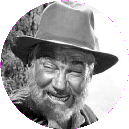 Jubal
(1956)
Jubal
(1956)
Below are links to reviews and further info from selected film sites. Links surrounded by a solid border lead directly to a page about this movie on that site. Links surrounded by a dashed border lead to a Google search for this exact movie title on that site. You may find it more efficient to open these links in separate browser tabs. Click Show More / All / Default to see more available links or return to the standard default selection. More (or fewer) choices of links can be selected via Options, and you can save your personal defaults (requires login).
Jubal is a 1956 western film written by Russell S. Hughes and Delmer Daves and directed by Delmer Daves. "Delmer Daves's intense, good looking Western based on Othello, in which Glenn Ford confronts jealousy and violence on Ernest Borgnine's ranch. Probably the least familiar of Delmer Daves' run of superior Westerns in the 1950s, Jubal is a gripping and intense drama of jealousy and power - supposedly a take on Othello - played out against the spectacular Grand Teton landscapes of Wyoming, with the superb Glenn Ford giving one of his best performances in any genre. This fine and much-needed colour restoration by Grover Crisp at Sony-Columbia is therefore a most welcome follow-up to Daves' The Last Wagon, shown in last year's 'Treasures'. Ford is an outcast, rejected by his own mother (who blames him for the death by drowning of his father), taken in by decent rancher Ernest Borgnine. There he finds himself in double jeopardy in the shape of Borgnine's vampiric wife (Valerie French) and her rejected lover, Rod Steiger, whose whining hostility makes his Poor Jud in Oklahoma! look like the boy next door. Steiger persuades Borgnine that French is making up to Ford, provoking a series of violent confrontations and outcomes which leave Ford with more emotional issues than he started with. Moody, grim and realistic, with Daves' characteristic swooping camera racking up the tension, Jubal has a depth unusual in a Western, and that's not just down to Shakespeare." Quoting Clyde Jeavons
